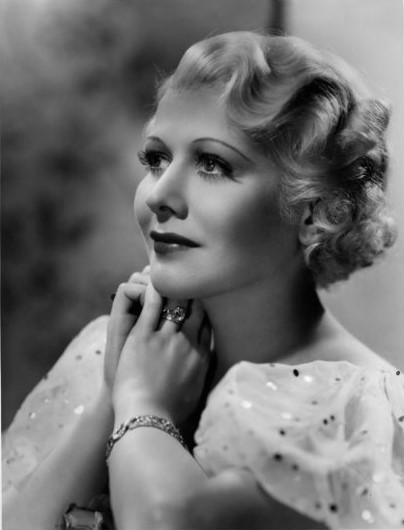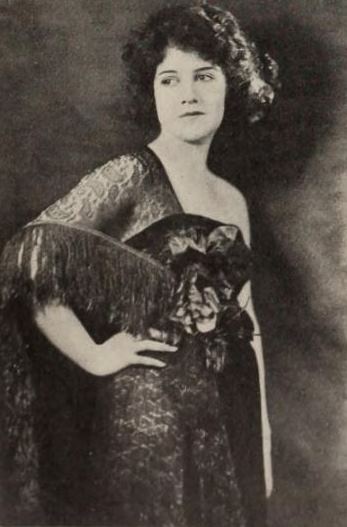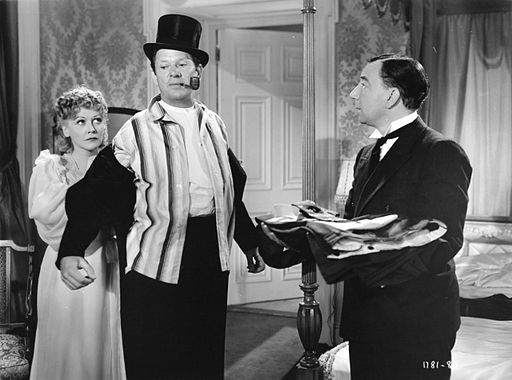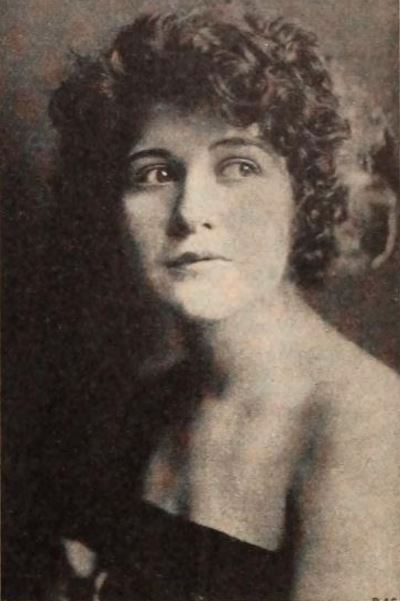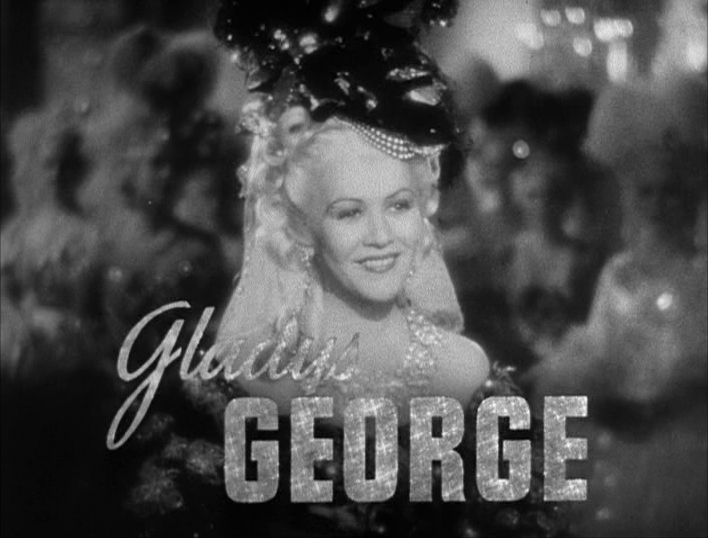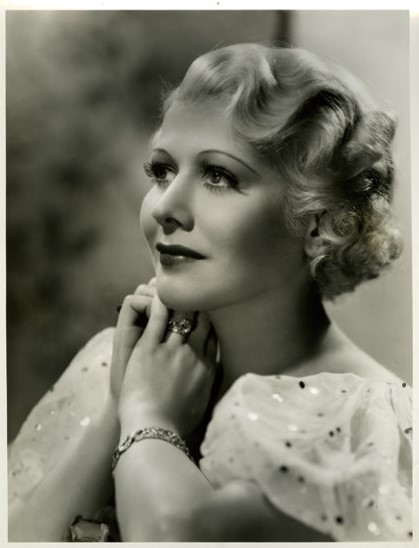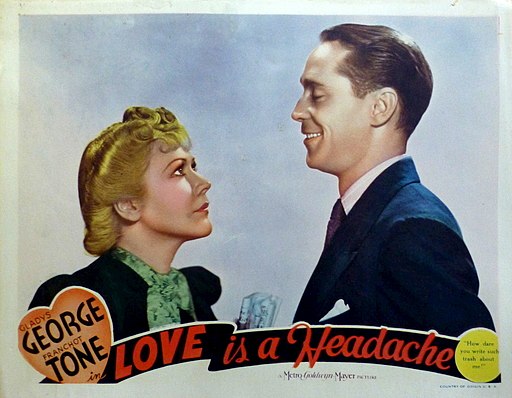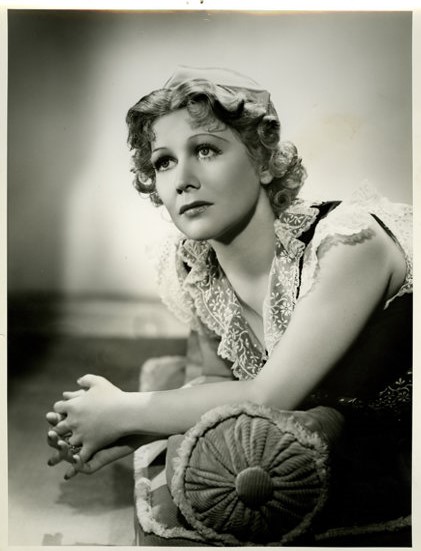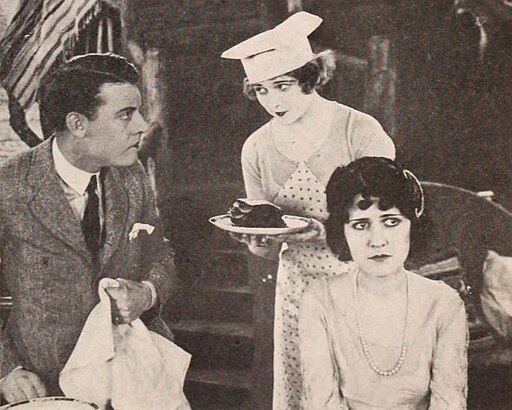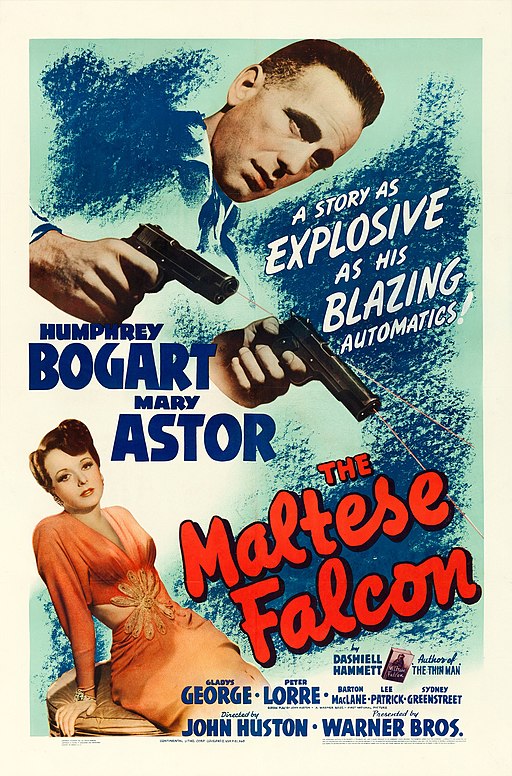Gladys George
back| Full Name | Gladys Clare Evans |
| Stage Name | Gladys George |
| Born | September 13, 1900 |
| Birthplace | Patten, Maine, USA |
| Died | December 8, 1954 |
| Buried | Valhalla Memorial Park Cemetery, North Hollywood, Los Angeles, California, USA |
| Married to | Ben Erway - Leonard Penn - Edward Fowle - Kenneth Bradley |
| Children | None |
| Notable films | The Maltese Falcon (1941) - Valiant is the Word for Carrie (1936) - Madame X (1937) |
Gladys George
The Actress of Subtle Strength
Gladys George (1900-1954) was an American actress renowned for her compelling portrayals in early 20th-century cinema. George's career, spanning both stage and screen, took off with her Broadway debut in 1916.
She transitioned to films during the silent era, achieving notable success in the 1930s and 1940s. Her most acclaimed role was in "Valiant Is the Word for Carrie" (1936), earning her an Oscar nomination for Best Actress.
Related
Gladys George (1900 – 1954)
Biography and Overview of her Career
Born as Gladys Clare Evans in 1900 in Maine, Gladys George was the daughter of English parents who were performers in the theatre. This early exposure to the performing arts heavily influenced her eventual career choice.
Career: George's acting career began in the theater, where she achieved considerable success. She made her Broadway debut in 1916 in a production of "The Betrothal". Her film career started in the silent film era, but she gained significant recognition in the 1930s and 1940s. Her role in "Valiant Is the Word for Carrie" garnered critical acclaim, earning her an Oscar nomination for Best Actress.
Later Years and Death: Despite a promising start, George's career declined in the 1940s, partially due to health issues related to alcoholism. She continued to appear in supporting roles in both films and on stage until her death in 1954 due to a cerebral hemorrhage.
Legacy: Gladys George is remembered for her husky voice, distinctive style, and strong portrayals of complex characters. Her performances, especially in "The Maltese Falcon" and "Valiant Is the Word for Carrie", continue to be appreciated by film enthusiasts and critics alike.
Video about the Life of Gladys George:
Acting Style of Gladys George:
Gladys George's acting style was marked by a blend of naturalism and depth, often imbued with a sense of vulnerability and complexity. She possessed a unique ability to bring authenticity and emotional richness to her characters, making her performances compelling and memorable. Here's a more detailed analysis of her acting style:
Nuanced Portrayals of Complex Characters
Gladys George excelled in portraying complex, often flawed characters. Her roles frequently involved women who had endured hardships or faced moral dilemmas. She brought depth and nuance to these characters, avoiding one-dimensional portrayals and instead presenting them as fully realized, multifaceted individuals.
Subtlety and Emotional Depth
Her performances were characterized by a subtle yet powerful display of emotions. George had the ability to convey a range of feelings, from despair to resilience, often with minimal dialogue. Her facial expressions and body language spoke volumes, allowing the audience to empathize deeply with her characters.
Elegance with an Edge
Even in her more glamorous roles, George brought an edge of realism. She had an elegant presence on screen but was never afraid to portray the grittier, less glamorous aspects of her characters' lives. This blend of elegance and rawness made her performances particularly striking.
Voice and Diction
George's voice was a significant tool in her acting arsenal. She had a distinctive, husky voice that added a unique texture to her performances. Her diction was clear and expressive, enabling her to deliver lines with precision and emotional impact.
Versatility Across Genres
She demonstrated remarkable versatility, moving effortlessly between drama, comedy, and film noir. Whether she was playing a motherly figure, a jaded showgirl, or a scheming wife, George adapted her style to fit the genre and the specific demands of the role.
Presence and Charisma
George had a strong screen presence and charisma that drew viewers in. Even in supporting roles, she often stole the scene with her magnetic performance. Her ability to command attention was evident in the way she interacted with other characters and dominated the frame.
Connection with the Audience
Perhaps one of her most notable qualities was her ability to connect with the audience. Viewers felt a sense of intimacy with her characters, as if they were privy to their inner thoughts and struggles. This connection was a testament to George's skill in making her characters relatable and human.
Cause of her Death:
Gladys George passed away on December 8, 1954, at the age of 54. Her cause of death was attributed to a cerebral hemorrhage, also known as a brain hemorrhage. This condition involves bleeding within the brain tissue or surrounding spaces, and it can be a life-threatening medical emergency.
It's also worth noting that Gladys George's health had been in decline for several years prior to her death, partly due to issues related to alcoholism.
Notable Quotes from Gladys George:
From "The Maltese Falcon" (1941) as Iva Archer:
- "You don't have to worry about me. I'm not going to say anything. I wish him luck."
- This line captures the complexity and subtlety of her character in this classic film noir.
From "Valiant Is the Word for Carrie" (1936) as Carrie Snyder:
- "I've been a lot of things to a lot of people."
- This quote reflects the depth and resilience of her character, a hallmark of George's ability to portray strong, multifaceted women.
From "The Roaring Twenties" (1938) as Panama Smith:
- "He used to be a big shot."
- This line is delivered at the end of the film, poignantly summarizing the rise and fall of the main character, played by James Cagney. George's delivery adds a touching note of nostalgia and sorrow.
Awards and Recognition:
Academy Awards
- 1936: Gladys George received an Academy Award nomination for Best Actress for her performance in "Valiant Is the Word for Carrie". This film, where she played a self-sacrificing woman running a boarding house, is often considered one of her finest roles. The depth and humanity she brought to the character were widely acclaimed.
Apart from this Oscar nomination, there are no other major award recognitions documented for Gladys George. This lack of awards does not diminish her contributions to the film industry nor the critical acclaim she received for her performances. During her time, the film industry was still evolving in terms of recognizing and awarding cinematic achievements, especially for actresses who often played supporting roles.
Movies featuring Gladys George:
1919
- "Red Hot Dollars": A silent film whose details are largely unknown today.
1920
- "Below the Surface": A drama about a diver's efforts to save a child trapped in a sunken ship.
1930
- "The Way of All Men": A drama where George plays a woman who is the object of affection for several men.
1934
- "Straight Is the Way": A film about a former criminal trying to reform his life.
1936
- "Valiant Is the Word for Carrie": Gladys George stars as Carrie Snyder, a woman who runs a boarding house and becomes a mother figure to two orphans.
1937
- "They Gave Him a Gun": A tale of two World War I soldiers returning to civilian life with contrasting experiences.
- "Madame X": George plays Jacqueline Fleuriot, a woman who becomes estranged from her family and descends into a life of degradation.
1938
- "Love Is a Headache": A comedic film where George plays a Broadway star involved in a publicity stunt.
- "The Roaring Twenties": A crime film where George plays Panama Smith, a hostess and friend to a World War I veteran turned gangster.
- “Marie Antoinette”: In this film, she played the role of Madame du Barry. The movie was noted for its grand production values and costume design, and George's portrayal of Madame du Barry was a notable part of the ensemble cast.
1939
- "I'm from Missouri": A comedy about a Missouri mule breeder trying to protect his daughter's marriage.
- "The Hardys Ride High": Part of the Andy Hardy series, featuring the Hardy family inheriting a fortune.
1940
- "He Stayed for Breakfast": A comedy about a Russian revolutionary falling in love with a Parisian woman.
- "The House Across the Bay": An aircraft manufacturer is sent to Alcatraz, and his wife struggles to cope.
1941
- "The Maltese Falcon": A film noir classic where George plays Iva Archer, involved in a complex plot around a valuable statuette.
1942
- "The Crystal Ball": A comedy about a secretary who turns to fortune-telling.
- "The Gay Sisters": A drama about the lives and loves of three wealthy sisters.
1943
- "Pittsburgh": A drama starring John Wayne and Marlene Dietrich, with George in a supporting role.
1944
- "Christmas Holiday": A film noir based on a Somerset Maugham story, with George playing a small but pivotal role.
1946
- "Nobody Lives Forever": A noir film about a con artist who falls for his target.
1947
- "Moss Rose": A murder mystery set in Victorian London.
1948
- "The Woman in White": A film adaptation of Wilkie Collins' novel, featuring George in a key role.
1949
- "Flamingo Road": A drama about a carnival dancer climbing the social ladder, with George in a supporting role.
1953
- "It Happens Every Thursday": A comedy about a New York couple taking over a small-town newspaper.
1954
- "The Best of Broadway" (TV Series): A series recreating Broadway hits, with George appearing in one episode.

